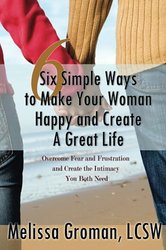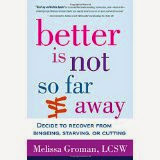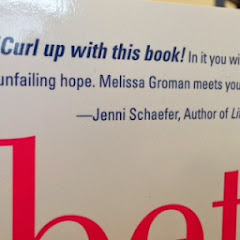
Sigh. I am the biggest fan of words. I study them, I help people speak them. I encourage the free flowing spontaneous uninterrupted stream of them. At least in my office, to my private, trained analytic understanding ear.
I put words together on paper, on the computer, in my mind. I marvel at the impact they can have, to hurt, to heal, to destroy, to bring together. I consciously come up with words, and I listen attentively to the random thoughts, chains of words, single words, ideas, impressions, feelings, that are not quite words, but could be, or would be, if they are allowed. My own, and those of my clients, my family, my friends.
I study word choices, meanings, cadence, tone, emphasis and volume. I unpack sarcasm (hostility, usually, or anxiety), and humor, and silence. The vacuum where words would be if they were not jammed up somewhere. And sometimes I take it all less seriously, and just let words glide around like thin stream water, or float like tiny bubbles, up and away. Sometimes, I hang on them, and wonder about them a while, especially if they may contain clues to someone's relief or pain.
I have witnessed words setting people free, dissolving pain, releasing anger, fear, frustration, worry. I have see words bring on comfort, relief, joy and rest. I have subscribed to Dr. Freud's idea of the Talking Cure. Which, I would really think is more of a listening cure, because I think that even though talking does help, we usually find it most helpful when someone is listening to what we are talking about. Maybe then, we should call it the being heard cure. Or the being understood cure. Or the being listened to well and gently cure."
So why the sigh? Well, this. With all my dedication to words, to finding them and saying them, or writing them. Or praying with them. And all my belief in their power, especially their curative uses. I also believe in quiet. I believe that we sometimes need a break (and a brake) from the words.
I think there is a deep and powerful benefit to meditation. Which of course, in many of its forms uses words, or chants, or phrases, to help quiet the mind, to elevate the spirit, to bring and find peace, and G-d, and grace. And of course meditation can be used to focus words, to contemplate an idea, made of words. To get new ideas, and new words. Or, and I think this is a big plus, to let go of old words, and old ideas, that don't help us anymore. Or that pop up spontaneously and try to poke us with old pain and old problems.
We can use meditation to help stop or redirect thoughts that come at us unrequested, from our unconscious, bringing us bad feelings or distraction or pain. I am not suggesting that talking out old pains and problems isn't useful or necessary, sometimes it takes a lot of talking, a lot of necessary talking, but sometimes we can benefit just as well from the quiet. From a cease fire in our minds of the things that bother us. We can need and have both, in our quest for recovery and meaning, and fullness in life.
I think that the practice of meditation in healing emotional pain cannot be underestimated. The practice of quieting the mind, and reaching the spirit is something that goes a long long way toward easier living, gentle relationships and grace in the world.
I suppose it could seem contradictory. To say that we need words to heal, and that we need a break from words to heal, but I think its true. I think that in my own practice of meditation, I have found much joy, and much calm and much relief.
Meditation can be used to help with OCD, with eating disorders, with anxiety, panic, and depression. I think that in the practice of psychotherapy and healing, and in the living a good life, it is vital. And it does not always have to be fancy or long, or require dedicated training, though certainly training is good for those who want to go deeper. But for those who want to just incorporate a bit of spirituality and mindfulness, or bring in some pause to otherwise busy days, meditation in all its form can carry us along to better feelings, and help bring in an overall sense of wellness and progress. Like letting fresh air blow through your brain.











